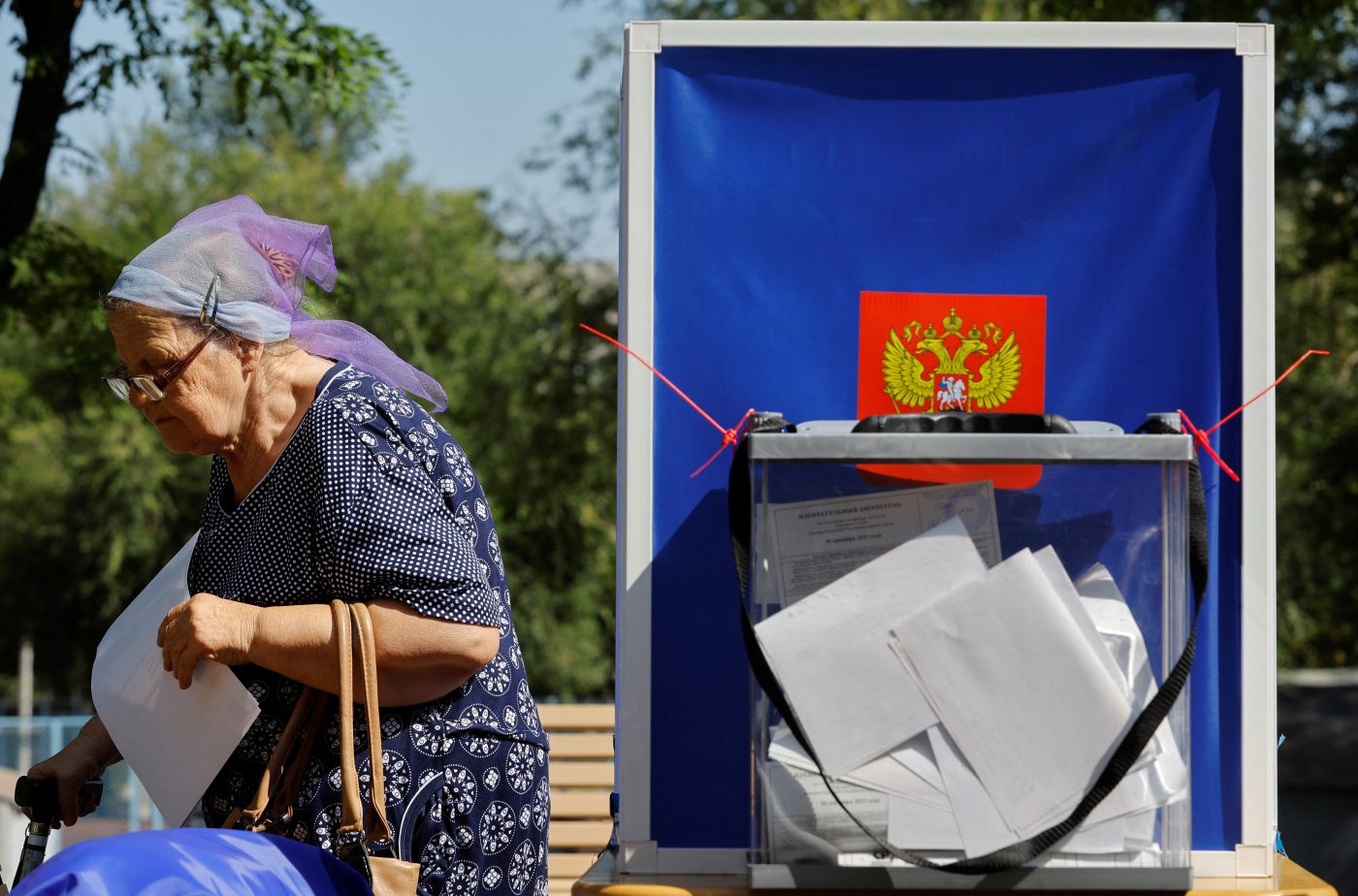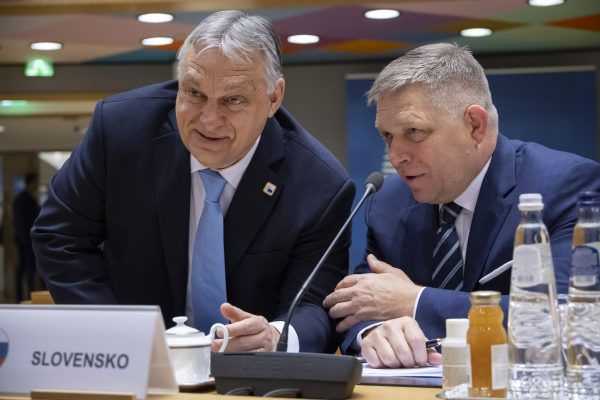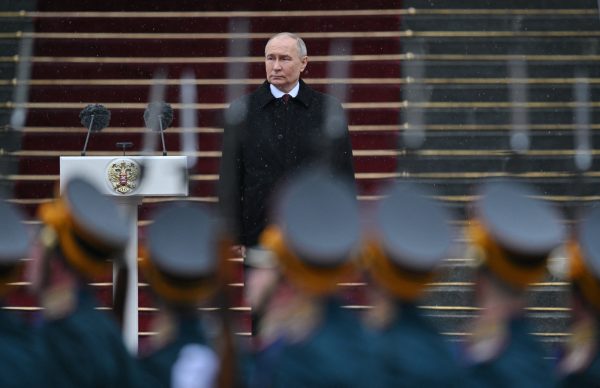Voting in some occupied regions started on August 31, and will last until September 10, as the Kremlin seeks to boost participation to add credibility to the elections for local “legislative bodies” and “self-government bodies”.
Russian-appointed governors said the early votes were only in “hard-to-reach settlements and places near the front line,” and posted pictures of people putting ballots in see-through boxes, but the collection of early ballots is widespread across the occupied territories. “The first elections in the composition of the great and united Russia are a real holiday,” Vladimir Rogov, Russian-appointed governor of Zaporizhzhia region, wrote on Telegram, demonstrating the propaganda purpose of the votes. While these take place on Ukrainian territory, only Russian parties are allowed to participate.
The whole process, which is intended for domestic Russian and international audiences, seeks to show a vibrant political life and create the illusion that local residents have a say over their future. The vote is unusual in a number of ways, not least because the constituencies are actually shrinking in size during the balloting process as a result of Ukrainian military action.
After the embarrassment of low turnout in previous fake votes, Moscow is desperate to increase participation and is taking ballot boxes to the population, even parking mobile polling stations near bus stops and other public places. Petro Andriushchenko, an adviser to Ukraine’s mayor of Mariupol, posted a picture of a Soviet-era Zhiguli car being used for voting near a hospital. “They grabbed everyone around, documents were not checked,” he wrote.
If people choose to stay home, a special brigade will travel to them, offering a parody of democratic participation. “Two soldiers with machine guns and three collaborators from the village” accompany field brigades going door-to-door, Yurii Sobolevskii, First Deputy Head of Ukraine’s Kherson Oblast Council, wrote on Telegram, citing local residents.
There is a similar pattern in other occupied territories. In Melitopol, Zaporizhzhia Oblast, the occupiers arranged an event for workers in public enterprises to vote so they could create a picture for Russian propaganda, according to Ivan Fedorov, the city’s exiled mayor. In Berdiansk, also in Zaporizhzhia Oblast, hospital bosses were ordered to send all medical staff to polling stations.
“The final moment of this show will be the ‘single voting day’, during which a crowd from Crimea and Russia will be conjured up to make the picture even brighter,” Fedorov said.
The Kremlin has also sited polling stations in 81 regions of Russia where Ukrainian exiles can vote.
By offering so many options for voting over so many days, Moscow is maximizing its opportunities to massage the numbers and feed its propaganda channels. If there are fewer people than expected at polling stations on September 10, it will now be more plausible for the Kremlin to claim others voted from home or voted early when it publishes inflated turnout statistics (a standard regime tactic well exemplified by the risibly rigged results of the 2014 Crimea annexation vote.)
The absence of international observers and the accreditation of only a limited number of journalists is also a sign of the unreliability of the elections. This lack of transparency is compounded by tensions between Russian forces and local collaborators over access to the process.
Authorities in the so-called Luhansk People’s Republic, for example, are refusing to accept accreditation certificates issued to media representatives by other election commissions. The restrictions include passes issued by the Central Election Commission of the Russian Federation, the Luhansk Oblast Military Administration reported.
This is causing particular problems because the occupiers, who do not trust their local collaborators, have brought a large number of Russians to the occupied territories to oversee the vote. After the “referendum” of September 2022 was ignored by the majority of the local population, the occupiers want to ensure that failure is not repeated.
“For this purpose, political technologists, observers, rally organizers, and propagandists have arrived in the temporarily occupied territories,” Ukraine’s National Resistance Center said in a post on its website. “Control over the ‘electoral process’ will be carried out by representatives of the Russian Central Committee from the Russian Federation.”

The Kremlin’s influence is also obvious in the candidates contesting the election. The Russian party lists include regime-linked officials and people involved in war crimes and corruption, alongside unemployed people with unclear sources of income, according to analysis by IStories and the Conflict Intelligence Team (CIT).
Daniil Basel, a 23-year-old from Moscow who was in a Rosgvardia militia unit before the war, and is now a military officer in Zaporizhzhia Oblast, is running for election, as is Olga Osypenko, the former assistant of members of the Ukrainian Parliament.
The Security Service of Ukraine has identified more than 3,500 organizers and participants in the fake elections and said the occupiers have promised 10,000 rubles ($103) to anyone willing to become a representative of the so-called electoral commissions.
While the Kremlin desperately wants to create an image showing everything is under control, Ukraine’s resistance has been at work. On August 29, the partisan movement ATESH claimed responsibility for an explosion at the headquarters of the United Russia party in occupied Nova Kakhovka, Kherson Oblast. Three Russian soldiers guarding the building were killed and documentation for the sham elections was destroyed, the group said.
The Defense Forces of Ukraine have also used drones to drop leaflets in the occupied territories urging residents not to vote. But for those faced with gun-toting election officials knocking at their doors with ballot boxes, it will be a hard choice.
What is certain is that the Kremlin will claim big turnouts, and the Russian-controlled media will be full of stories about support for Russian parties and candidates. That much was clear before a single vote was cast.
In fact, these sham elections are mere theater, where each participant must play his/her role. Some act for money and some are coerced by an automatic weapon. Once these territories are liberated by the Ukrainian military, it will be possible to hold free and fair elections with Ukrainian parties, candidates, and media, enjoying an open process meeting high international standards. That contrast will say everything necessary about the bad old days of Kremlin oppression.
Elina Beketova is an in-residence fellow with the Democracy Fellowship program at the Center for European Policy Analysis (CEPA.) Her research focuses on Ukraine’s temporarily occupied territories. She has previously worked as a journalist, editor, and TV anchor for various news stations in Kharkiv and Kyiv.
Europe’s Edge is CEPA’s online journal covering critical topics on the foreign policy docket across Europe and North America. All opinions are those of the author and do not necessarily represent the position or views of the institutions they represent or the Center for European Policy Analysis.





